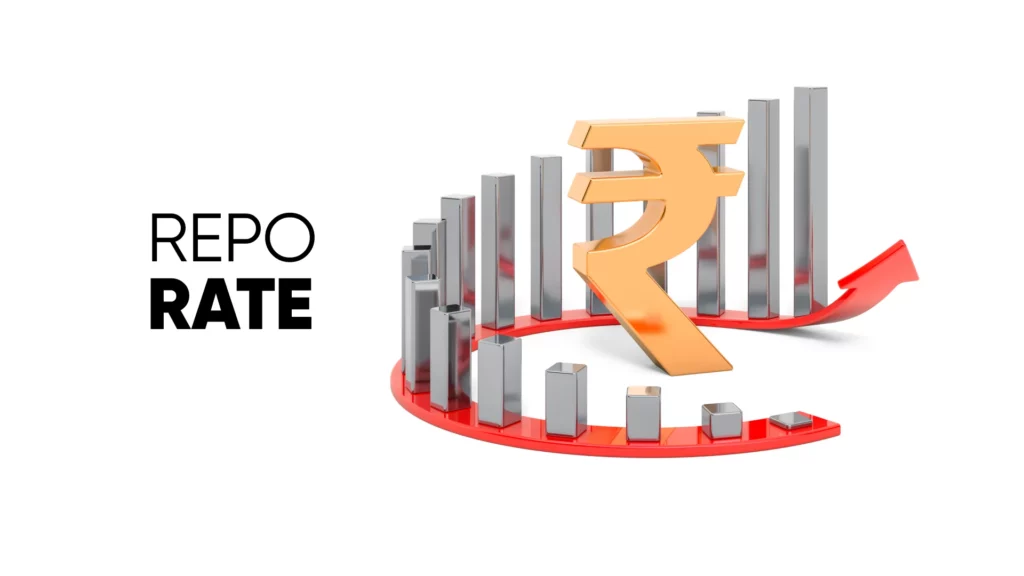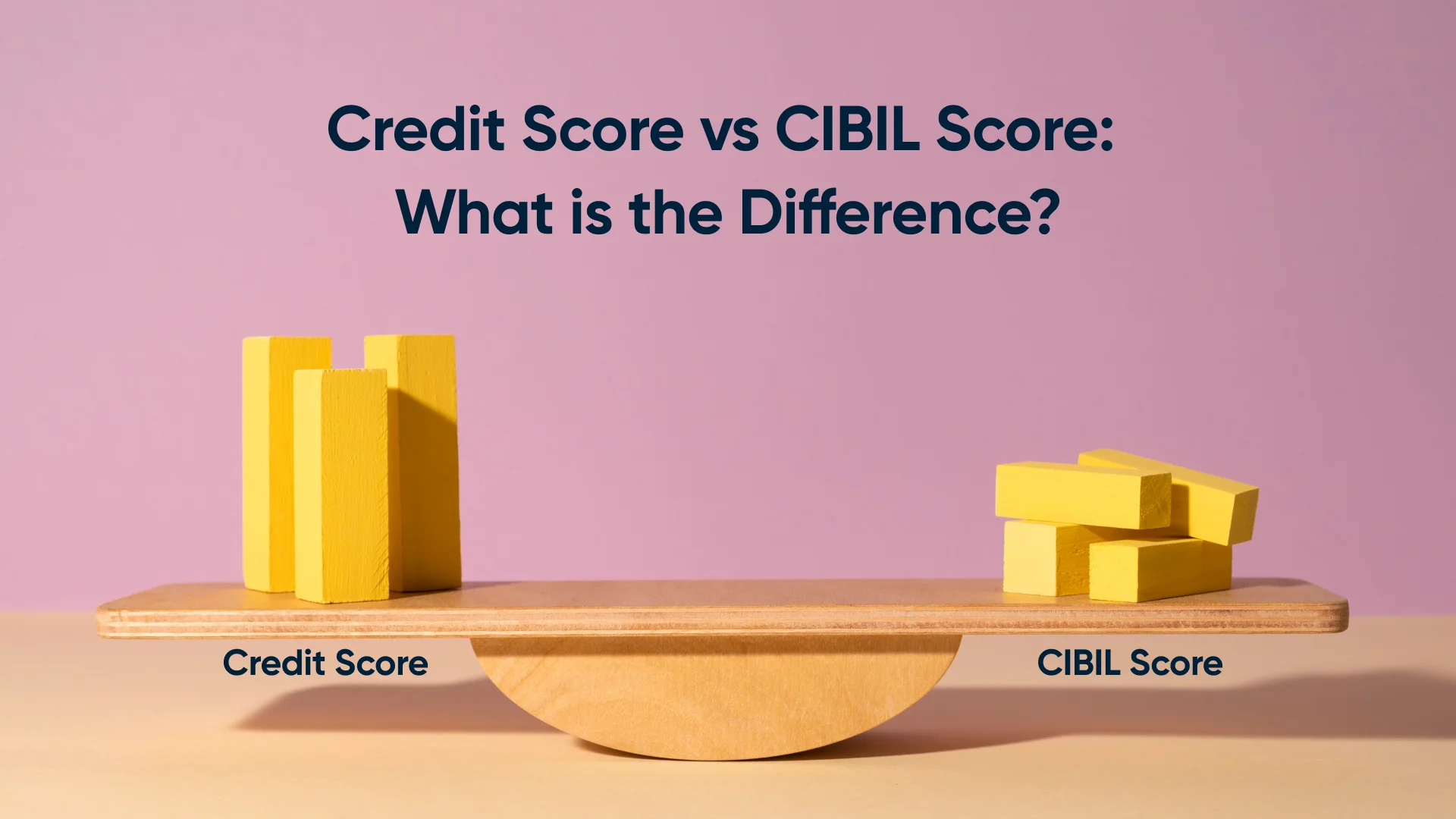What is Repo Rate? Why does it matter?

Table of Contents
ToggleWhat Is Repo Rate?
The way you take loans from loan apps or banks at an interest rate, a bank does the same, but with the RBI. The rate of interest at which banks borrow money is called “Repo Rate”.
But if the repo rate has nothing to do with you, why bother even reading this blog?
It’s because timing your financial decisions is important, and understanding how the repo rate affects your decision can help you make a better choice. Want to know how? Keep reading.
How Does Repo Rate Work?
The way you might borrow money from banks or financial institutions when you’re short on cash, banks borrow money from the RBI. And repo rate meaning is the rate at which they borrow money. While you may think that this number has no direct impact on you, understanding its effects in the market can help you time your financial decisions better.
Usually, central banks increase the repo rate to control the inflation in a country. This has a significant impact on the interest rate charged on personal loans, deposit rate, and even the demand for goods and services.
Current Repo Rate in India
The central bank sets the repo rate to manage the cash flow and control the inflation of the economy of the country. In India, the Reserve Bank of India determines the repo rate based on the monetary policy.
When there is inflation in the country, the central bank increases the repo rate to control it. According to the latest news announced on 8th February, 2024, the repo rate of India remains unchanged at 6.5%.
The 6.5% repo rate has remained unchanged since February 2023.
Also Read: Why Opting For an NBFC Personal Loan is a Better Option?
How Does RBI Calculate Repo Rate?
There are many factors and market conditions which the Reserve Bank of India takes into consideration when calculating the repo rate of a country.
Inflation Rate
The inflation rate of the economy plays a significant role in determining the repo rate of the country. Inflation rate is nothing but the rate at which the prices of goods and products increase. RBI closely monitors this number. If there is an increase in inflation, they will increase the repo rate to control it.
Economic Growth
Another important factor that influences the repo rate is the economic growth of a country. A high repo rate can negatively impact economic growth as taking big-ticket loans for businesses can become more expensive. Similarly, a lower repo rate can make borrowing more affordable which can boost the economic activity in a country.
Liquidity in the Banking System
Liquidity in the banking system are the funds available for lending and borrowing. The RBI may increase the repo rate if they see excess liquidity. The increased repo rate helps in managing the excess money in the system.
Monetary Policy Committee (MPC)
RBI’s Monetary Policy Committee consists of 6 members who determine the repo rate. They closely monitor the inflation and the economic condition of the country to make this decision.
How Does Repo Rate Affect You?
1. Change In Interest Rates
When you see an increase in the repo rate, avoid taking any big-ticket loans such as home, education loan, or business loans. You would pay a high interest rate on these loans, making your repayment more expensive.
In the case of a lower repo rate, it’s a good time to take a personal loan for your future plans, like buying a house or investing in your business.
2. Change In The Deposit Rate
When the repo-rate is high, put your money in a recurring deposit or fixed deposit. Because you can find the deposit rates are higher, giving you a bigger return on investment.
If the repo rate is decreasing, it is always better to look at alternate investment options because you would get a lower interest rate on your fixed deposits.
3. Change In The Demand For Products & Services
Rise in inflation increases the price of products and services. To control this, the central bank increases the repo rate.
The rise in repo rate increases the cost of borrowing money, leading to a lesser number of people spending on big-ticket purchases.
On the other hand, a decrease in repo rate means a lower interest rate on personal loans, which in turn means that people have more cash in hand to make their purchases.
4. Change In Employment
When the repo rate is high, business owners will avoid any big business loans, this usually leads to a slower growth in the economy. This leads to a slowdown in hiring and new job opportunities.
So if you are planning to look for a new job, repo rate is one of the factors you can consider while making your decision.
How Does Repo Rate Affect Personal Loan?
The change in repo rate doesn’t only impact the rate at which banks borrow money from the RBI. It also affects the rate at which you take personal loans.
When there is an increase in the repo rate, there is an increase in the interest rate charged on big ticket loans.
An increase in interest on your loans will automatically increase the EMI you have to pay every month.
As a result, taking out home renovation loans, education loans, and business loans is more expensive.
In Conclusion
According to the report issued by the RBI on February 8th, 2023, the repo rate increased to 6.5% from 6.25%.
This change in the repo rate could be both- good and bad for you. On one side, the prices of products and services would increase, and on the other, it is a great opportunity to invest your money and increase your savings.
Frequently Asked Questions (FAQs)
What Is The Current Repo Rate?
As per the latest news, the current repo rate of India is 6.5%.
What Is The Current Reverse Repo Rate?
As per the latest news, the current reverse repo rate is 3.35%.
Who Decides The Repo Rate?
In India, the Reserve Bank of India decides the repo rate by carefully analyzing the inflation and economic conditions of the country.
How A Hike In Repo Rate Can Affect Your Personal Finances?
Here’s how a hike in repo rate can affect your personal finances:
- An increase in repo rate increases the interest rate charged on big-ticket loans. This makes loans like home loans, business loans, education loans, more expensive.
- The deposit rates are higher when there’s an increase in the repo rate. This makes recurring deposits a good saving option.
- The rise in repo rate increases the cost of borrowing money, leading to a lesser number of people spending on big-ticket purchases.
What Will Happen If The Repo Rate Is Increased?
Here’s what will happen if the repo rate increases:
- There will be an increase in the interest charged on big-ticket loans, making borrowing more expensive.
- The deposit rate on FDs will increase, making it a great saving option.
- There will be an inverse impact on the stock market as the stock prices will decrease.
What Is The Difference Between Repo Rate And Reverse Repo Rate?
Repo rate meaning is the rate at which commercial banks and financial institutions borrow money from the central bank. On the other hand, the rate at which commercial banks and financial institutions park their excess funds with the central bank is known as reverse repo rate.
What Happens If The Repo Rate Decreases?
Here’s what will happen when there an decrease in the repo rate:
- The interest rate charged on big-ticket loans are comparatively lower making it more affordable.
- The deposit rate decreases.
- The number of big-ticket spends increases.
YOU MAY ALSO LIKE





Search by posts
Recent post
Categories
- Blog (2)
- Credit History (25)
- Credit Line (7)
- Festive (3)
- Finance (15)
- Mutual Fund (9)
- Personal Loan (231)
- Tax (8)
- Zype (4)









